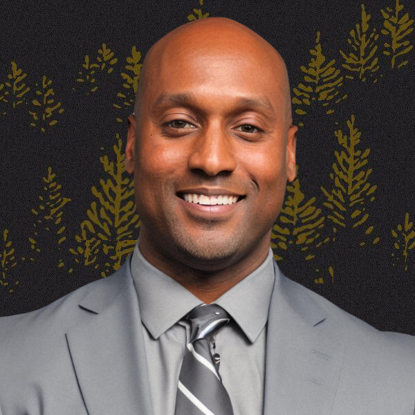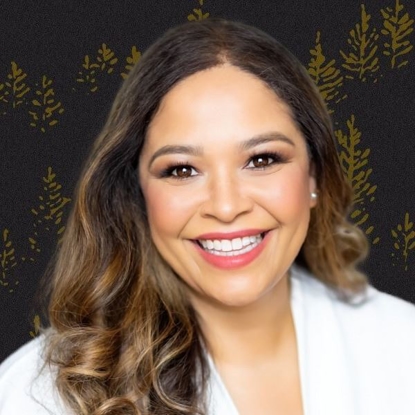
Tacoma Child Custody Lawyer
Protecting Your Child & Parental Rights
For any parent, engaging in a custody battle is nerve-wracking. At Pacific Cascade Legal, we know how important your children are to you. Whether you want to pursue an amicable resolution out of court or litigate our case, our Tacoma child custody attorneys are here to advocate for you and your child's rights.
Let us shoulder the burden of your child custody case in Tacoma. Schedule your free consultation today: 253-300-4521.
Types of Child Custody in Tacoma, WA
In Washington child custody cases, there are two types of custody:
- Physical custody. If a parent has physical custody, their child can live with them.
- Legal custody. If a parent has legal custody, they can make decisions concerning their child's rights, such as the education they receive, the type of healthcare they have, etc.
How legal and physical custody are distributed among parents largely depends on the kind of custody arrangement they have.
How Is Custody Determined in Tacoma?
In the state of Washington, custody is decided based on the best interests of the child. In general, this means that the court will try to keep both parents involved in the child's life in some capacity, whether through shared custody or visitation, but sole custody may be granted to one parent if it's determined to be in the child's best interests.
In Tacoma, WA, the family court will make a custody determination based on a number of factors, including:
- Which parent has a demonstrated history of being the child's caretaker
- Each parent's demonstrated desire and capacity to care for the child
- Each parent’s health (physical, emotional, and mental)
- The child’s relationship with each parent and siblings in each household (if applicable)
- The child’s extracurricular activities and community involvement
Joint Custody Versus Sole Custody
Parents often engage in one of two custody arrangements:
- Joint custody. In a joint custody arrangement, both parents often have legal and physical custody of the child (however, this does not mean the parents necessarily split time with their child equally).
- Sole custody. In a sole custody arrangement, only one parent has physical custody of the child, although the other parent may still retain some legal custody rights.
During custody arrangement, courts prioritize the child's best interests. As a result, most courts prefer joint custody to sole custody since joint custody gives a child access to both parents on a regular basis.
However, joint custody isn't always appropriate. If a parent lacks the resources to care for a child or circumstances would make joint custody difficult, they may instead gain visitation rights to see their child even if they can't host them.
In other cases, the court may determine that a parent is unfit. Parents who engage in behavior such as substance abuse, criminal activity, abuse, or take other actions that create an unsafe environment may not be able to gain custody of their child.
Parents can handle custody dispute in a couple of different ways:
- Through an agreement. If the parents agree on terms for a custody arrangement, they can draft a parenting plan detailing those guidelines. If the judge approves of the agreement they'll finalize it.
- Through litigation. If the parents disagree on terms for a custody arrangement, they can each present a parenting plan to the court. The judge will then examine both parties' cases and issue a parenting plan the court deems equitable, finalizing the case.
Courts consider a wide range of factors during custody cases, including:
- The age and health of both parents;
- How capable each parent is of providing for the child;
- Each parent's history with the child;
- Whether either parent has a record of abuse or similar actions;
- The living environment each parent possesses;
- How a hypothetical custody arrangement would impact the child;
- Whatever other factors the court considers relevant to the case.
At Pacific Family Law, our Tacoma child custody attorneys stand ready to help you negotiate an equitable custody arrangement. Our conveniently located Tacoma office has free, safe, easy to find parking right off Interstate 5 at the Tacoma Mall Office Building.
Call 253-300-4521 Today to Schedule Your Free Consultation with Our Firm!

-
 About Us
About Us -
 Resources
Resources -
 Video FAQ
Video FAQ

Meet Your Advocates
Focused on Client Relationships, Integrity, Results & A Better Tomorrow
-
 Lewis Irwin Landerholm Founding Partner
Lewis Irwin Landerholm Founding Partner -
 Will M. Jones Partner
Will M. Jones Partner -
 Alan Nieczyporuk Attorney
Alan Nieczyporuk Attorney -
 Natalie Thorp Jr. Partner
Natalie Thorp Jr. Partner -
 Kimberly Brown Attorney
Kimberly Brown Attorney -
 Darin Wisehart Attorney
Darin Wisehart Attorney -
 Sarah Bain Attorney
Sarah Bain Attorney -
 Olivia Raymond-Williams Attorney
Olivia Raymond-Williams Attorney -
 Timothy Downin Attorney
Timothy Downin Attorney -
 Christy Carpenter Limited License Legal Technician
Christy Carpenter Limited License Legal Technician -
 Shanni Moore Paralegal
Shanni Moore Paralegal -
 Eryn Sisson Paralegal
Eryn Sisson Paralegal -
 Lauren Antrim Associate Manager of Finance, Human Resources & Administration
Lauren Antrim Associate Manager of Finance, Human Resources & Administration -
 Terrance Hogan Attorney
Terrance Hogan Attorney -
 Andy Kralios Attorney
Andy Kralios Attorney -
 Michael Trotter Attorney
Michael Trotter Attorney -
 Zach Santos Attorney
Zach Santos Attorney -
 Lisa Parsons Lead Paralegal / Workflow & Training Specialist
Lisa Parsons Lead Paralegal / Workflow & Training Specialist -
 Lesley Sepetoski Paralegal
Lesley Sepetoski Paralegal -
 Laura Pride Paralegal
Laura Pride Paralegal -
 Jeannette Cordova Paralegal
Jeannette Cordova Paralegal -
 Kailey Maginnis Paralegal
Kailey Maginnis Paralegal -
 Teena Quichocho Paralegal
Teena Quichocho Paralegal -
 Zulema Cornejo Paralegal
Zulema Cornejo Paralegal -
 Claudine McKague Legal Assistant
Claudine McKague Legal Assistant -
 Rachel Woleben Director of Finance, Human Resources, and Administration
Rachel Woleben Director of Finance, Human Resources, and Administration -
 Kari Landerholm Director, Marketing & Growth
Kari Landerholm Director, Marketing & Growth -
 Steve Altishin Director, Client Partnerships
Steve Altishin Director, Client Partnerships -
 Jeremy Armitage Associate Manager of Finance, Technology, and Administration
Jeremy Armitage Associate Manager of Finance, Technology, and Administration -
 Claudia Preciado Client Billing Manager
Claudia Preciado Client Billing Manager
































